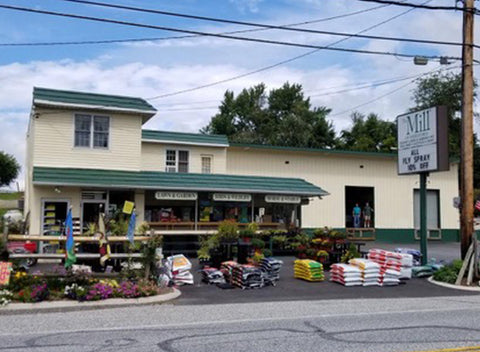As we move deeper into August, row crop markets and in-field conditions are both giving farmers plenty to think about. In this week’s RFD-TV Market Day Report, Ben Hushon, The Mill’s Head of Agronomy and Certified Crop Advisor, shared his market observations and key agronomy updates. His message is clear: now is the time to be in your fields, assessing pollination progress and scouting for disease pressure — and The Mill’s agronomy team is here to help you do just that.
In the Field: Why August Scouting Is Critical
Even as corn moves from tassel to brown silk, Ben stresses that there’s plenty to learn right now:
“There’s a temptation to say there’s nothing else I can do to this crop — but there’s still a lot to observe,” Ben says.
1. Check Pollination Progress
A field may look great from the road, but husking back a few ears can reveal surprises. Some ears this year are showing up to 20% unpollinated kernels, which can directly impact final yield.
2. Watch for Early Tar Spot
Tar spot has been spotted earlier than usual in some Mid-Atlantic fields this season — even on lower leaves like the second leaf from the bottom. This fungal disease shuts down photosynthesis up to two weeks before black spots appear, limiting grain fill.
When tar spot reaches the ear leaf (the critical leaf attached to the ear), yield losses can be significant. Whether fungicide applications are still worthwhile depends on crop maturity, infection location, and planting date.
3. Be Aware of Tassel Wrap
Reports of tassel wrap — where leaves fail to unroll properly around the tassel — are increasing. While originally thought to be variety-specific, recent observations show it occurring across multiple hybrids. Unfortunately, there’s no known corrective action, but scouting now can explain yield issues later.

Action Steps for Farmers
-
Walk your fields now: Don’t wait until harvest to uncover problems.
-
Husk multiple ears: Check kernel set and pollination progress.
-
Scout for disease pressure: Look for early tar spot symptoms and assess leaf health.
-
Partner with The Mill’s agronomy team: Our Certified Crop Advisors can help you assess pollination, identify disease issues early, and determine if in-season fungicide treatments are still an option.
-
Leverage local expertise: From field scouting to seed selection, The Mill offers full agronomy services tailored to Mid-Atlantic growing conditions.
“Rather than waiting until October to wonder why yields weren’t great, get out there today,” Ben advises. “It’s a beautiful day to walk fields and see what’s really happening.”
Need support in the field?
The Mill’s agronomy team works one-on-one with growers to improve yield potential and manage in-season challenges. Contact us to schedule a field visit or learn more about our scouting, crop protection, and precision ag services.

























